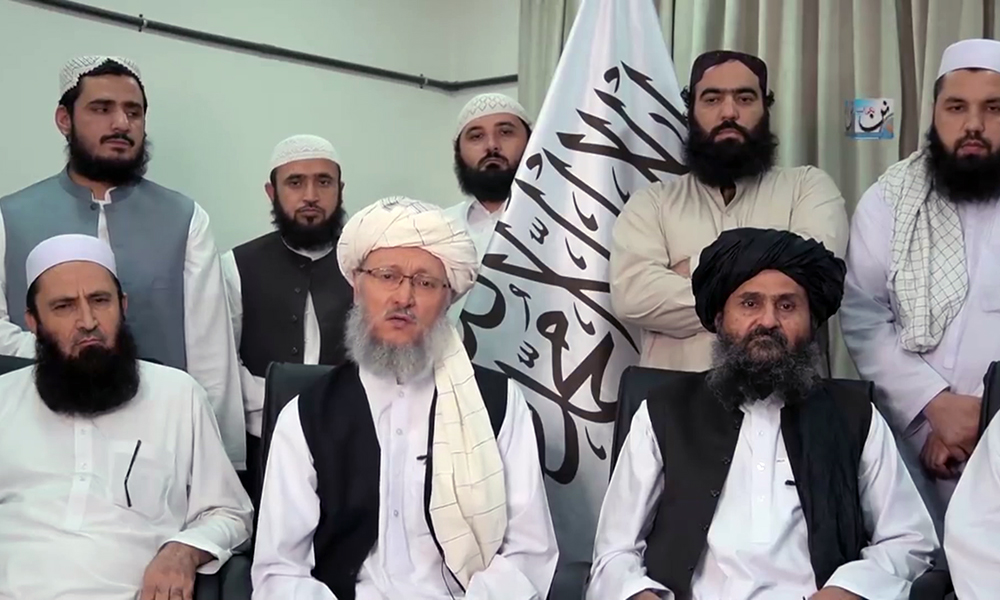Western Efforts to Isolate Taliban Failing on Multiple Levels

Michael Hughes
July 30, 2022
The U.S. and its allies are finding it difficult to effectively isolate the Taliban regime, especially in the face of pressure to help the people of Afghanistan amid the ongoing humanitarian crisis. Some factions from Washington to Brussels are doing their utmost to ensure the radical movement does not receive anywhere near the type of international recognition it desires, although Kabul’s de facto relations with neighboring states has provided at least a sheen of legitimacy.
At an international conference in Uzbekistan on Afghanistan this week representatives from 30 countries held talks in different formats with Taliban officials including from the West. Some critics lambasted political leaders for using the word “government” at all in the context of these discussions.
Meanwhile, at least fourteen nations have staffed embassies inside Taliban-run Afghanistan including China, Russia, India, Pakistan, Iran and a handful of Central Asian and Gulf states.
Washington and the West are faced with the brute empirical sovereignty of the Taliban, which will persist with or without the juridical form. The Taliban, however, seem confident that eventually formal normalization will come from many states and that Western countries will even return.
“Their governments are now convinced to return to Afghanistan because every one of them has its own interests,” Afghan deputy foreign minister Sher Mohammad Abbas Stanikzai told Ariana News on Friday. “Western countries especially, including America, don’t want Afghanistan to remain in isolation and not have a presence.”
Yet despite these warm ties, not a single state has taken the step to recognize the Taliban, primarily because of the government’s harsh treatment of women and girls. Even the very creator of the Taliban, Pakistan, has been leery of moving prematurely on this front. Pakistani Foreign Affairs Ministry spokesperson Asim Iftikhar Ahmad at a press briefing last week said Islamabad believes recognition could be conferred best via a “regional, consensual approach.” But many in the West feel the consensus against legitimizing the regime will remain strong.
“If there are a few good things at the moment it is, that there is the tremendous consensus on the non-recognition in the entire Western world and I actually don’t see that changing in the near future,” EU Ambassador for Afghanistan Andreas von Brandt said in an interview with Tolo News on July 22.
The Taliban believe the biggest obstacle to recognition has been the United States, which has tried to even strangle the government in Kabul financially as millions of Afghans starve. President Joe Biden’s idea to freeze $7 billion of Afghan funds, half of which will go to 9/11 victims’ families, has turned out to be a P.R. nightmare – and may even be legally questionable. War crimes lawyer and international law professor, Francis Boyle, has argued that the move amounts to a form of economic warfare that violates the 1948 Genocide Convention.
On Thursday, a group of U.S. senators in a letter to UN chief Antonio Guterres urged the Security Council to re-impose 1988 sanctions against the Taliban over its human rights abuses. The senators also called for ensuring the Taliban government does not receive a seat at the United Nations when the UN Credentials Committee meets in September.
“The vote on credentials will occur one year after the Taliban violently overthrew the democratically-elected government of Afghanistan,” said the letter signed by the head of the Senate Foreign Relations committee Bob Menendez and four other lawmakers. “The United Nations must remain steadfast in denying the illegitimate Taliban authorities the international recognition they so desperately seek, especially as they continue to abuse the human rights of Afghans.”
Meanwhile, the U.S. has reluctantly been working with the Taliban on unlocking $3.5 billion in Afghan Central Bank reserves. After talks in Uzbekistan between US and Taliban officials earlier this week, the State Department said the groups agreed to accelerate the process to enable the funds “to be used for the benefit of the Afghan people.”
Diplomatic isolation is one thing, but the financial measures have led to dire unintended consequences, such as lack of funding for demining efforts. The UN children’s agency said over the course of seven months ending in March, some 300 Afghan kids were killed or maimed by landmines and other unexploded devices. When the war ended humanitarian groups saw an opportunity to make progress in one of the most heavily mined places on earth after 40 years of war.
Moreover, many experts and economists oppose bypassing the government because the lack of strong state services and a viable banking sector will simply exacerbate the suffering. Meanwhile, the World Food Program said it is facing a shortfall of nearly $1 billion to sustain operations in Afghanistan with nearly half of the population facing critical levels of hunger.
In short, the West’s isolation plan has failed to weaken the Taliban regime and has not persuaded Kabul to change any of its policies. The most visible tangible result so far has been more misery for Afghans.
If isolation efforts end up improving the lot of women and girls in Afghanistan, it is certainly a noble enterprise. In the meantime, we should also try to ensure they survive to one day enjoy these hard-earned rights.
